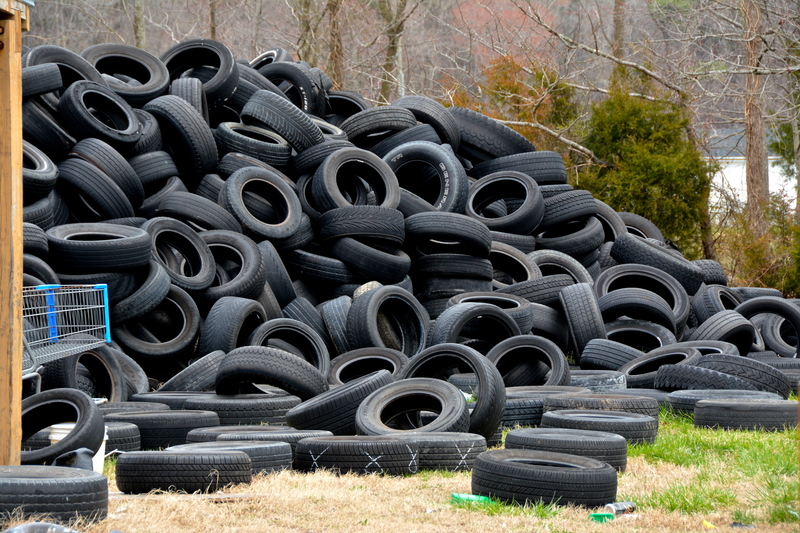A large pile of old tires has been an eyesore along Route 113 north of Georgetown for years. The discarded tires are in violation of county code that prohibits the accumulation of waste or trash that presents a fire hazard or creates an unsightly condition detrimental to the use or value of adjoining properties.
Now, Sussex County officials are reviewing options to remove the tires. And one thing is for certain, according to County Administrator Todd Lawson. “The cost to the county would be significant to remove the tires,” he said during county council's April 1 meeting.
In the meantime, state officials are also seeking a way to get the pile cleaned up. Department of Natural Resources and Environmental Control officials are in discussion with the property owner to get him to allow the operator of the former Master Tires store back to the site to remove the tires, said DNREC spokesman Michael Globetti.
County attorney J. Everett Moore said the county could seek remediation administratively or pursue the matter in Justice of the Peace Court or Chancery Court. “If the county brings a court action to require the property owner to clean up the tires or allow the county to clean up the tires, the county has less risk, since its actions will be pursuant to court order after a full judicial proceeding,” he said.
Council President Mike Vincent, R-Seaford, directed Lawson to review the options and comments from council and come back with a recommendation at a future meeting.
The most recent tenant of the property, Master Tires, has moved to another location along Route 113. In 2013, the county granted conditional-use approval for used tire sales with seven conditions, including the construction of a fence around the tires; the fence was never put into place, according to Moore. In recent years, the property was also the location of a used-car sales lot.
Moore said violation notices have been sent to the property owner since 2009. The most recent violation sent March 20 cited the property owner for failure to construct a fence and for accumulation of discarded tires, the attorney said.
To some members of council, the issue is broader than one tire pile. “This needs more attention. We need to be more pro-active and more aggressive,” said Councilman George Cole, R-Ocean View. “Some areas like this have been ignored for months and even years. We've been shortsighted on enforcement; we should be jumping out immediately.”
Councilman Vance Phillips, R-Laurel, said traditionally, county officials have relied on state agencies to deal with tire piles, trash and rubbish in unincorporated areas of the county. “We need to be more forward, clean these areas up and attach liens on property. We can't wait for the state.”
Phillips said if the county does decide to clean up the tire pile, all costs plus interest should be recovered through a lien on the property.
It was Phillips who brought the matter to council's attention after one of his constituents took him on a tour of the county to show him several discarded piles of tires.
“It's in our code to do something about it, so we should do it,” said Councilwoman Joan Deaver, D-Rehoboth Beach, adding research should be done to see exactly what the state law is pertaining to rubbish and trash piles.
“I don't want this to keep happening. The state should be working with us and clean up should not be a burden on taxpayers,” Deaver said.
The state has maintained a scrap tire management fund since 2007. Money for the fund comes from a $2 fee paid to the state for every tire that is sold. According to the Department of Natural Resources and Environmental Control website, funds are available to help defray the cost of cleanup and disposal of piles of more than 100 scrap tires in existence before June 30, 2006. Recycled scrap tires in Delaware are crushed and shredded to become flooring for equestrian arenas and playgrounds.


























































